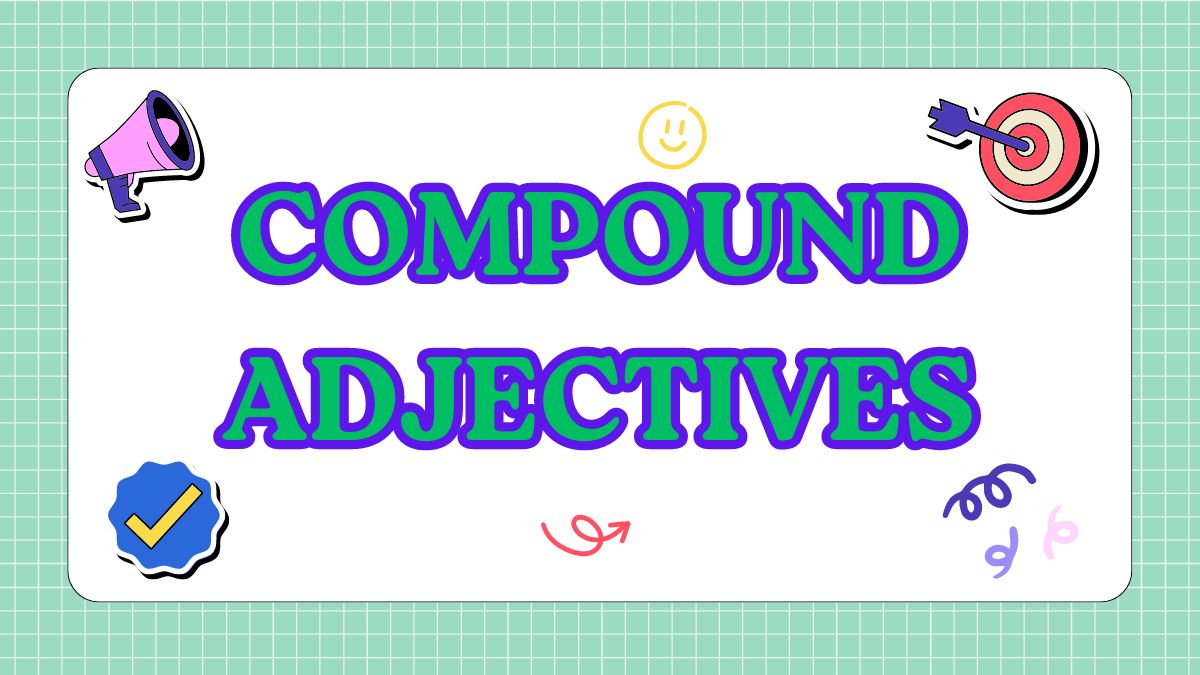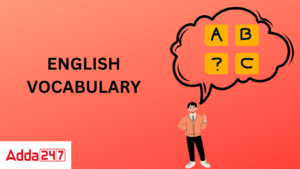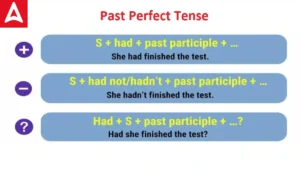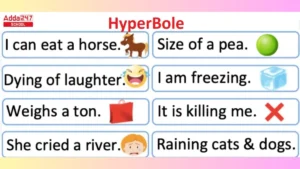Compound adjectives in English grammar are an interesting part that can enhance writing and speech with detailed descriptions. As the name suggests, the compound adjective is a combination of two words. By combining two or more words, these compound adjectives provide a succinct way to communicate specific qualities. This article delves into the meaning, varieties, and application of compound adjectives, and their ability to improve communication.
Compound Adjectives
When you talk about someone or something, such as a flower, you use terms such as stunning, vibrant, new, blooming, and more. You can also refer to a car as new, used, attractive, vintage, etc. Compound adjectives are the terms we use to describe a car. An adjective is a word used to describe or give more information about a noun or pronoun.
There exist various types of adjectives, with most of them being only a single word in length. However, some adjectives are created by combining multiple words and these are known by the name: Compound adjectives.
Compound Adjectives Meaning
It is a common trait of human beings to describe someone or something. Having the skill to accurately choose descriptive words for a specific person, animal, place or object is important. At times, you may need more than just a simple adjective to explain it. Compound adjectives are helpful in these situations.
Any combination of words that can be used as an adjective in a sentence is called a compound adjective. A compound adjective is made up of an adjective with a noun, present participle, or past participle. In some circumstances, the adjective may appear before one of these, while in other cases, it may come after them. Hyphens are used in most compound adjectives.
Compound Adjectives Definition
Check the official definition of the compound adjective as per the popular English Grammar dictionaries below.
“Compound words are two or more words linked together to produce a word with a new meaning,” according to the Cambridge Dictionary. Therefore, a compound adjective is any additional component of speech that is joined with an adjective to describe the subject or object of a phrase and mean something else.
As per the Collins Dictionary, “In grammar, a compound noun, adjective, or verb is made up of two or more words, for example, fire engine, bottle-green, and force-feed”.
The Oxford Learner’s Dictionary defines a compound adjective as one that is “formed of two or more parts.”
Examples of Compound Adjectives
Compound adjectives are made up of two or more words linked by hyphens. They work together as one concept to describe a noun. Check the most commonly used compound adjective along with their sentence examples below.
- Heart-warming: “The movie was heart-warming and brought tears to my eyes.”
- Well-known: “She is a well-known author in the mystery genre.”
- Bitter-sweet: “Graduating from college was a bitter-sweet moment.”
- Long-term: “They are making long-term investments for their children’s future.”
- Short-lived: “The snowstorm was intense but short-lived.”
- Full-time: “She has a full-time job at the hospital.”
- Part-time: “He works part-time while attending university.”
- Ice-cold: “He handed me an ice-cold drink on a hot day.”
- English-speaking: “Canada is an English-speaking country.”
- High-quality: “They sell high-quality leather goods.”
Types of Compound Adjectives
The compound adjectives are formed after joining two components of parts of speech that help them categorize in different types. Check the types of compound adjective below.
Adjective + Present Participle
| Adjective | Present Participle | Compound Adjective |
| Good | Looking | Good – looking |
| Slow | Moving | Slow – moving |
| Long | Lasting | Long – lasting |
| Easy | Going | Easy – going |
| Long | Running | Long – running |
| Tight | Fitting | Tight – fitting |
| Quick | Thinking | Quick – thinking |
| Easy | Going | Easy – going |
Adjective + Past Participle
| Adjective | Past Participle | Compound Adjective |
| Old | Fashioned | Old – fashioned |
| Long | Haired | Long – haired |
| Short | Lived | Short – lived |
| Ready | Made | Ready – made |
| Kind | Hearted | Kind – hearted |
| Narrow | Minded | Narrow – minded |
| Strong | Willed | Strong – willed |
| Quick | Witted | Quick – witted |
Adjective + Noun
| Adjective | Noun | Compound Adjective |
| Last | Minute | Last – minute |
| Long | Distance | Long – distance |
| Short | Term | Short – term |
| Full | Length | Full – length |
| High | Quality | High – quality |
| Short | Distance | Short distance |
| Long | Term | Long – term |
| Half | Length | Half – length |
Noun + Adjective
| Noun | Adjective | Compound Adjective |
| World | Famous | World – famous |
| Sugar | Free | Sugar – free |
| Plastic | Free | Plastic – free |
| Family | Friendly | Family – friendly |
| Ice | Cold | Ice – cold |
| Book | Smart | Book – smart |
| Smoke | Free | Smoke – free |
| India | Famous | India – famous |
Noun + Present Participle
| Noun | Present Participle | Compound Adjective |
| Eye | Catching | Eye – catching |
| Money | Saving | Money – saving |
| Mouth | Watering | Mouth – watering |
| English | Speaking | English – speaking |
| Time | Saving | Time – saving |
| Record | Breaking | Record – breaking |
| Thought | Provoking | Thought – provoking |
| Spanish | Speaking | Spanish – speaking |
Noun + Past Participle
| Noun | Past Participle | Compound Adjective |
| Middle | Aged | Middle – aged |
| Sun | Baked | Sun – baked |
| Home | Grown | Home – grown |
| Sun | Dried | Sun – dried |
| Water | Cooled | Water – cooled |
| Oil | Soaked | Oil – soaked |
| Child | Wanted | Child – wanted |
| Dog | Used | Dog – used |
Adverb + Past Participle
| Adverb | Past Participle | Compound Adjective |
| Well | Behaved | Well – behaved |
| Brightly | Colored | Brightly colored |
| Highly | Respected | Highly respected |
| Well | Known | Well – known |
| Deeply | Rooted | Deeply rooted |
| Well | Paid | Well – paid |
| Widely | Recognized | Widely – recognized |
| Densely | Populated | Densely populated |
Compound Adjectives List
Below are some compound adjectives that you can utilize to add detail and precision to your writing or speech. Students are advised to memorize this list as these adjectives are used frequently.
- 100 – page
- Last – minute
- Full – length
- Heavy – laden
- Short – lived
- Long – distance
- High – quality
- Quick – thinking
- Nail – biting
- Three – hour
- Record – breaking
- Time – saving
- Ready – made
- World – famous
- English – speaking
- Middle – aged
- Densely – populated
- Highly – qualified
- Long – forgotten
- Highly – respected
- Old – fashioned
- Smoke – free
- Waterproof
- Shatterproof
- Break – free
- Four – week
- Good – looking
- Blue – collar
- Short – term
- White – washed
- Short – handed
- Ill – minded
- Ice – cold
- Grass – fed
- Home – bred
- East – facing
- Mouth – watering
- Overcooked
- Undercooked
- Deep – fried
- Seasick
- Well – known
- Tightly – wound
- Fifty – storey
Does Compound Adjectives Always Need a Hyphen
Compound adjectives generally require hyphens, unlike compound nouns. However, this is not always true, just like the majority of grammar rules. Some compound adjectives may be placed before a noun in a sentence without the need for hyphens. Below are some instances of open compound adjectives used in sentences:
- As a new lawyer, you should expect to perform pro bono work.
- When I saw him, he had that “running on empty” look in his eyes.
- My sister and I are going to a dub reggae concert at the end of this month.
A few closed compound adjectives use in sentences are as follows:
- The potato was undercooked, but the cabbage was perfect.
- He bought an overstuffed ottoman for his living room.
Differentiating Compound Adjectives from Adjectives
A hyphen is required when using other compound adjectives to show that the two or more words are functioning as one compound adjective. Let’s consider the example of yellow-striped, Examine these two statements:
- She drove a yellow-striped car.
- She drove a yellow, striped car.
Can you spot the distinction? The initial sentence shows her behind the wheel of a car decorated with yellow stripes. In the next frame, a car with yellow paint is shown with stripes in a different color. Also, observe how yellow and striped are divided by a comma in the second sentence. This is because, based on the Royal Order of Adjectives, yellow and striped are both terms that describe the design of the car and therefore require this differentiation.
Compound Adjective Starting with Adverbs
If a compound adjective begins with an adverb, it should not be hyphenated. Below are some instances of compound adjectives that are initiated by adverbs and are consequently not connected by hyphens:
- Overly affectionate
- Neatly pressed
- Warmly received
Compound Adjective that Contains Superlatives
Moreover, compound adjectives starting with superlatives must always be hyphenated when placed in front of the nouns they modify. Below are some instances:
- Maria was better-suited to the role than Ryan.
- It turned out to be a very low-stress job.
However, a superlative-containing compound adjective following its noun should not be hyphenated.
- We didn’t want to wait to eat, so we chose a restaurant that was lesser known than others in the neighborhood.
- When I filled my tank, the fuel I chose was high octane.
Compound Adjective that Contains Numbers
Hyphens are typically required for compound adjectives that contain numerals. As an illustration, you may say:
- We ate a second-rate meal at the diner.
- The insular culture retained twentieth-century sensibilities.
However, a hyphen is not necessary when the number is placed second in the compound adjective. Here is a sample of this kind of compound adjective:
- My wife has Type 2 diabetes.
Compound Adjectives Exercise
Discover the compound adjectives in the sentences and determine the parts of speech that make up the compound adjectives.
- The villain in that movie seemed to be a cold-blooded man.
- All my students are well-behaved.
- Each one of us were able to make it to the top of the 100-feet high mountain.
- Gokul works as a part-time trainer.
- Since you are a diabetes patient, make sure you consume only sugar-free food.
- The three-legged, green-eyed monster in the movie looked really scary.
- The marriage and reception were well-planned.
- Find out if the widely-known singer would be available to be our chief guest for the inter-state musical competition.
- The ten-hour long journey was worth it.
- The movie about the life of nurses in the Middle East countries had a long-lasting effect on the audience.
Answers:
- The villain in that movie seemed to be a cold-blooded man. (Adjective + Past Participle)
- All my students are well-behaved. (Adverb + Past Participle)
- Each one of us were able to make it to the top of the 100-feet high mountain. (Adjective + Noun)
- Gokul works as a part-time trainer. (Adjective + Noun)
- Since you are a diabetes patient, make sure you consume only sugar-free food. (Noun + Adjective)
- The three-legged green-eyed monster in the movie looked really scary. Adjective + Past Participle, Adjective + Past Participle)
- The marriage and reception were well-planned. (Adverb + Past Participle)
- Find out if the widely-known singer would be available to be our chief guest for the inter-state musical competition. (Adverb + Past Participle)
- The ten-hour long journey was worth it. (Adjective + Noun)
- The movie about the life of nurses in the Middle East countries had a long-lasting effect on the audience. (Adjective + Present Participle)
| Related Articles | |
| Relative Pronouns | Common Nouns |
| Transitive and Intransitive Verbs | Conjunctive Adverbs |
| Adjectives | Subordinating Conjunctions |












 Vocabulary Words with Meaning and Senten...
Vocabulary Words with Meaning and Senten...
 Past Perfect Tense: Definition, Formula,...
Past Perfect Tense: Definition, Formula,...
 Hyperbole- Explanation, Definition, Exam...
Hyperbole- Explanation, Definition, Exam...














